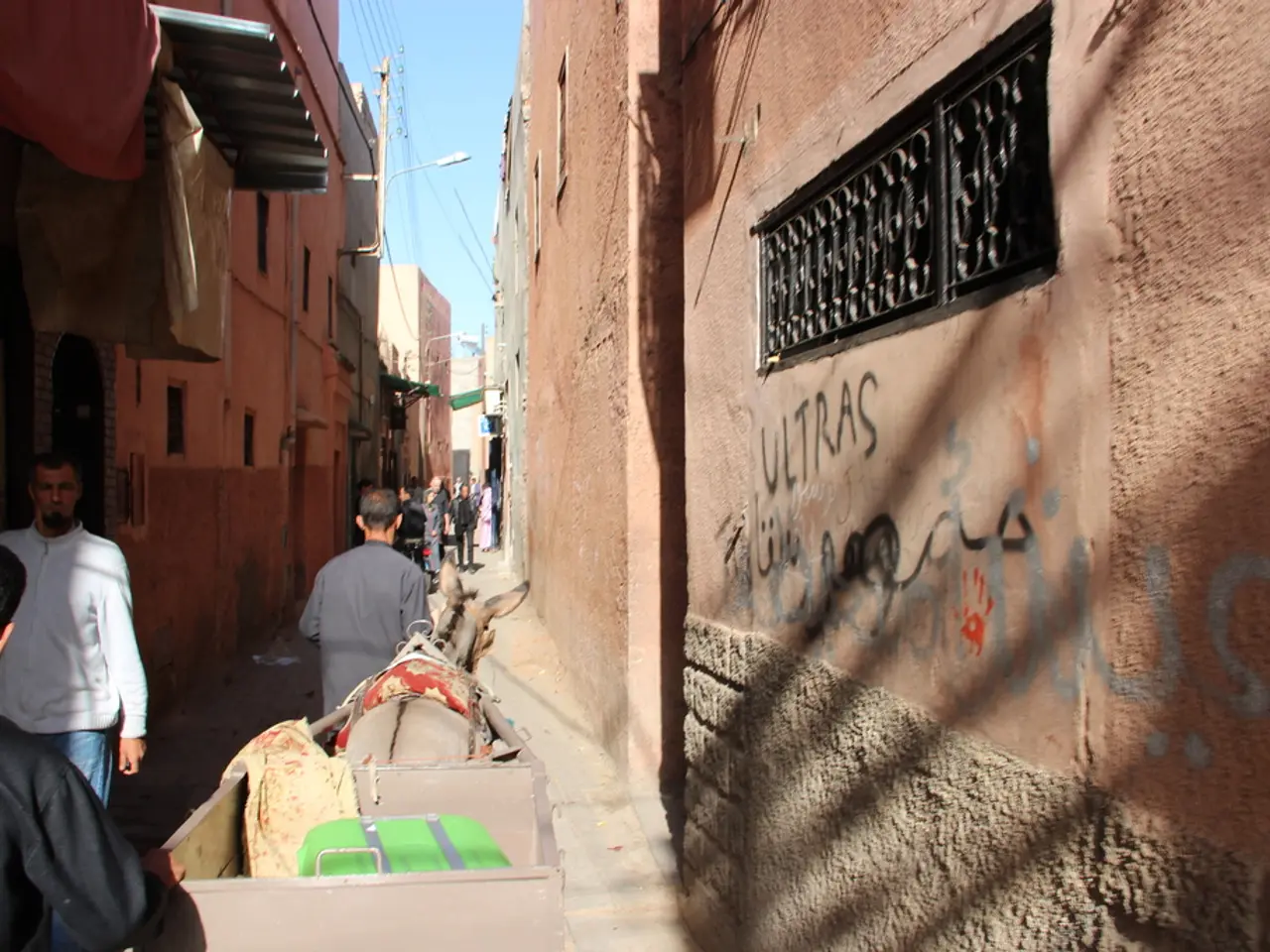Australia formally acknowledges the establishment of a Palestinian state, according to Prime Minister Albanese's statements
In a significant move, Prime Minister Anthony Albanese of Australia announced on August 11, 2025, that Australia will formally recognize the State of Palestine at the 80th session of the United Nations General Assembly in September 2025 [1][2][3].
The recognition comes with conditions that support a two-state solution as the pathway to peace. Australia has emphasized its commitment to international momentum towards peace, including a ceasefire in Gaza and the release of hostages [1]. The recognition is contingent on the Palestinian Authority's commitments such as governance reforms, ending prisoner payments, instituting schooling reform, demilitarizing, holding general elections, and reaffirming recognition of Israel's right to exist [1].
Australia also intends to work with partners on a credible peace plan ensuring governance, security arrangements for Palestine, and Israel's security. The recognition aims to break the cycle of violence and counteract actions like rapid illegal settlement expansion and annexation threats by Israel that undermine the two-state solution [1].
The two-state solution involves creating a state of Palestine alongside Israel in most or all of the occupied West Bank, the war-ravaged Gaza Strip, and annexed east Jerusalem, territories Israel seized in the 1967 Mideast war.
New Zealand, too, has been clear that its recognition of a Palestinian state is a matter of when, not if. The recognition is predicated on commitments from the Palestinian Authority, including no role for Hamas in a Palestinian government, demilitarization of Gaza, and the holding of elections [1].
It's important to note that Australia has designated Hamas, a Palestinian political and militant group, as a terrorist entity. The United States and other Western powers have held off on recognizing Palestinian statehood, stating that it should be part of a final agreement resolving the Middle East conflict.
Prime Minister Albanese dismissed the idea that the move was solely symbolic. He repeated his government's calls for Hamas to return Israeli hostages held since October 7, 2023, and criticized the Israeli government for denying sufficient aid, food, and water to people in Gaza, including children [1].
In the lead-up to this decision, Albanese had discussions about Australia's decision with the leaders of Britain, France, New Zealand, and Japan. He also had a "long discussion" with Israel's leader, Benjamin Netanyahu, this month. Netanyahu criticized Australia and other European countries for moving to recognize a Palestinian state [1].
Albanese last week spoke to Palestinian President Mahmoud Abbas and referred to the situation in Gaza as a "humanitarian catastrophe." Abbas has agreed to these conditions with Western leaders, including Albanese, as they prepared to recognize a Palestinian state [1].
References: [1] ABC News Australia (2025). Australia to recognise Palestine at UN General Assembly. Retrieved from https://www.abc.net.au/news/2025-08-11/australia-to-recognise-palestine-at-un-general-assembly/133451444 [2] The Guardian (2025). Australia to recognise Palestine at UN General Assembly. Retrieved from https://www.theguardian.com/world/2025/aug/11/australia-to-recognise-palestine-at-un-general-assembly [3] The New York Times (2025). Australia Recognizes Palestine at U.N., Tying Recognition to Peaceful Conditions. Retrieved from https://www.nytimes.com/2025/08/11/world/australia-palestine-un.html [4] Reuters (2025). Australia to recognize Palestine statehood at U.N. Retrieved from https://www.reuters.com/world/australia-to-recognize-palestine-statehood-u-n-2025-08-11/ [5] BBC News (2025). Australia to recognise Palestine at UN General Assembly. Retrieved from https://www.bbc.co.uk/news/world-australia-61040875
- The government of Australia has decided to work with partners, including those in Seattle, to develop a credible peace plan for Palestine and Israel, aiming to address politics related to war-and-conflicts in the region, such as governance, security arrangements, and the counteraction of illegal settlement expansion.
- In a bid to support international momentum towards peace, the government of Australia has announced that it will recognize the State of Palestine at the 80th session of the United Nations General Assembly, joining other world leaders in advocating for a two-state solution and addressing issues of general news like ceasefires in Gaza, hostage releases, and other commitments from the Palestinian Authority.






